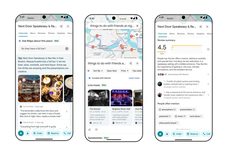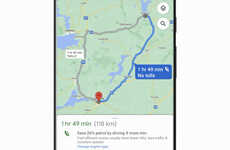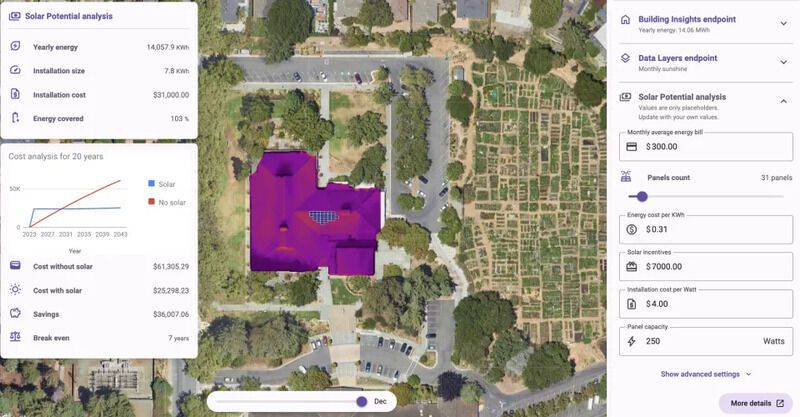
Google Adds New Features to its Ingenious Project Sunroof
Google first launched its Project Sunroof Maps layer in 2015 and it blended together data that observed location, sunlight, and navigation to understand how much energy solar panels are able to generate. This was a unique way to properly propel the company's sustainability efforts through technical understanding.
At the Google Cloud Next event, the company will unveil a slew of new sustainability-centric APIs that will channel AI technology to aid developers with real-time solar understanding along with information about air quality and pollen levels. With all of these, Yael Maguire, VP of Geo Sustainability at Google explains that “we can work toward our ambition to help individuals, cities, and partners collectively reduce 1 gigaton of their carbon equivalent emissions annually by 2030."
Image Credit: Google
At the Google Cloud Next event, the company will unveil a slew of new sustainability-centric APIs that will channel AI technology to aid developers with real-time solar understanding along with information about air quality and pollen levels. With all of these, Yael Maguire, VP of Geo Sustainability at Google explains that “we can work toward our ambition to help individuals, cities, and partners collectively reduce 1 gigaton of their carbon equivalent emissions annually by 2030."
Image Credit: Google
Trend Themes
1. Real-time Solar Understanding - Google's new sustainability-centric APIs will provide developers with real-time solar understanding using AI technology.
2. Air Quality Awareness - The new APIs will also provide information about air quality, allowing developers to create applications that help individuals and cities monitor and manage air pollution levels.
3. Pollen Level Tracking - Google's sustainability-centric APIs will include data on pollen levels, enabling developers to build applications that assist individuals in tracking and managing allergies.
Industry Implications
1. Renewable Energy - The new sustainability APIs by Google present opportunities for innovation in the renewable energy industry by providing real-time solar understanding and other related information.
2. Environmental Monitoring - The addition of air quality and pollen level data to Google's APIs opens up possibilities for disruptive innovation in the environmental monitoring industry, allowing for the development of advanced solutions for tracking and managing pollution and allergies.
3. Smart Cities - With the availability of real-time solar understanding and air quality information through Google's APIs, the smart cities industry can explore innovative applications to reduce energy consumption and improve environmental sustainability.
5
Score
Popularity
Activity
Freshness























